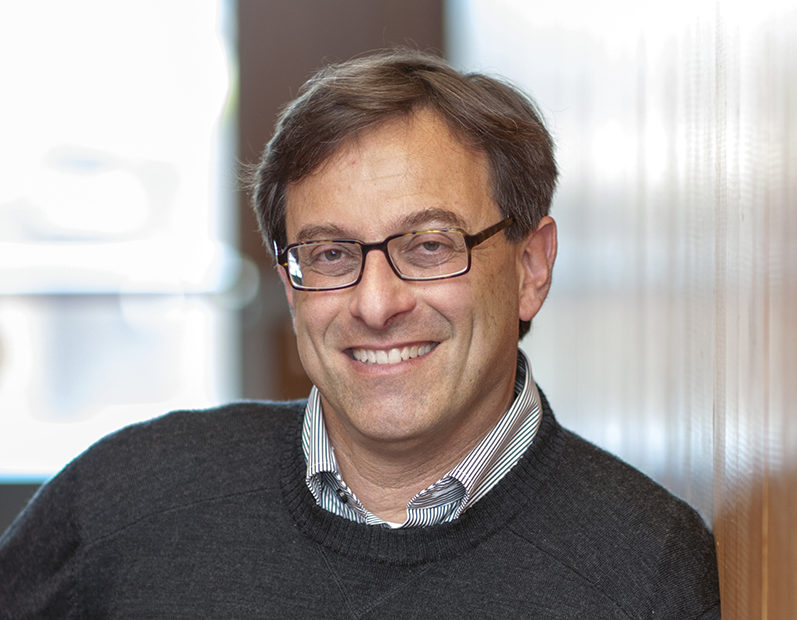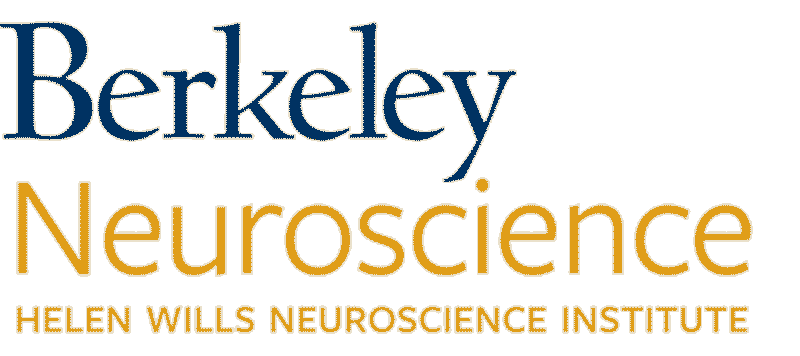-December 2023-
Annual Message from Our Director

Ehud (Udi) Isacoff
Professor of Neurobiology, Molecular and Cell Biology
Director, Helen Wills Neuroscience Institute and Berkeley Brain Initiative (2013-present)
Director, Weill Neurohub East (2019-present)
Evan Rauch Chair in Neuroscience
I am thrilled to share that on December 1, 2023, we celebrated the grand opening of the NexGen 7T MRI brain scanner on our campus, which was developed by an international team led by Helen Wills Neuroscience Institute (HWNI) member David Feinberg in partnership with Siemens. The scanner is a tremendous technological advance that allows us to observe human brain activity at ultra-high resolution, putting UC Berkeley at the forefront of human brain imaging research. I would like to congratulate David and his team, including HWNI member Chunlei Liu, on their incredible achievement, and express our utmost gratitude to the NIH BRAIN Initiative, the UC Berkeley campus, and the Weill Neurohub for providing major funding for this project.

David Feinberg cutting the ribbon at the grand opening of the NexGen 7T MRI. Photo credit: Brandon Alexis Sanchez Mejia
The scanner will be available to neuroscientists across the Weill Neurohub (a collaboration between UC Berkeley, UCSF and the University of Washington), as well as internationally through the NIH BRAIN Initiative. We anticipate that the NexGen 7T scanner will enable scientists to make important new discoveries about the organization and functioning of the human brain, and lead to new insights into brain diseases and disorders.
Earlier this fall, Weill Neurohub East was honored to host the annual Alliance for Therapies in Neuroscience (ATN) symposium on our campus for the first time. The ATN is a research partnership between the three universities in the Weill Neurohub and Roche and Genentech, aimed at accelerating the development of new therapies for debilitating brain diseases and disorders of the central nervous system — such as Alzheimer’s, Parkinson’s, and multiple sclerosis — through collaborations between academic and industry scientists. Over 100 researchers from across the ATN’s institutions attended this year’s symposium, where they shared their research and discussed new ways they could potentially collaborate to advance understanding, diagnosis, and treatment of neurological diseases, and I am glad we could help facilitate these conversations and connections.
Speaking of new connections, I am delighted to welcome our newest HWNI faculty members Samantha Lewis, James Olzmann, Jacob Yates, and Gül Dölen (starting in January 2024) to our community, as well as the Neuroscience PhD Program entering class of 2023. We are so excited to have you join us!
Over the past year, our members have made discoveries that advance the field of neuroscience and our understanding of the mind, on levels spanning from proteins to perception. From the functioning of neurons on the molecular level, to how they encode the outside world, to human decision-making and consciousness, our scientists have probed the mysteries of the brain both in their individual labs and in collaborations, often with other HWNI members. Some of the discoveries they made this year could improve our understanding and treatment of neurodegenerative diseases such as Alzheimer’s, as well as other health conditions such as visual impairment and diabetes, and could even have impacts on technology, education, and law. You can read about some of these research discoveries on our website. I am extraordinarily proud of the innovative and important research conducted by my colleagues in HWNI, and look forward to seeing what they will discover next!
Our faculty have received many honors and awards this year in recognition of their excellence in research, teaching, and mentoring. Marla Feller was elected to both the American Academy of Arts & Sciences and the National Academy of Sciences, Mark D’Esposito won the 2023 Fred Kavli Distinguished Career Contributions Award, Yang Dan won the 2023 Edward M. Scolnick Prize in Neuroscience, Joni Wallis was elected as a fellow of the American Association for the Advancement of Science, Yvette Fisher won the C.J. Herrick Award in Neuroanatomy, Markita Landry won a 2023 Bakar Prize and was named a 2023 Schmidt Science Polymath, Michael Rapé was elected as an associate member of the European Molecular Biology Organization, Diana Bautista won a 2023 Graduate Assembly Faculty Mentor Award, Christopher Chang won a 2024 American Chemical Society National Award, and Austin Roorda was awarded the 2024 Rank Prize for Optoelectronics. Andrea Gomez and new HWNI faculty member Samantha Lewis were both named 2023 Sloan Research Fellows, and Lewis additionally won the 2023 Prytanean Faculty Enrichment Award and a grant from the Chan Zuckerberg Initiative. Bob Knight received an Honorary Doctorate degree from the Hebrew University of Jerusalem, as well as an NINDS Landis Award for Outstanding Mentorship. Karthik Shekhar won a 2023 McKnight Scholar Award, a Scialog: Microbiome, Neurobiology and Disease award, two teaching awards from the College of Chemistry, and was named an Allen Institute Next Generation Leader. We were pleased to award the 2023 Rennie Fund for the Study of Epilepsy, which is administered by HWNI, to Ellen Lumpkin. Fritz Sommer and current or former postdocs Connor Bybee, Paxon Frady, and Denis Kleyko were selected as finalists for the 2023 Bell Labs Prize. Finally, postdoc Mark Plitt (Fisher lab) was selected as a Jane Coffin Childs Fund for Medical Research Fellow, postdoc Raul Arturo Ramos-Garcia (Lumpkin lab) was chosen as an HHMI Hanna Gray Fellow, and Connor Bybee (Olshausen lab) won a Swartz Postdoctoral Fellowship. Congratulations to everyone on your remarkable achievements!
We are continuing to make progress towards establishing a Department of Neuroscience at UC Berkeley. This will be a unique new department that will span the full range of the field, from molecular to systems to human cognitive neuroscience, including computation and neuroengineering. The department will be a center for cutting-edge research, offer a new undergraduate major in neuroscience, and offer PhD training by adopting the existing Neuroscience PhD Program (which will serve both the department and broader HWNI faculty). We won approval for the department from the College of Letters and Sciences in spring 2022, and we are now nearing completion of central campus review. I greatly appreciate all the work that HWNI member Dan Feldman has put in to lead this exciting effort! We hope to launch the department administratively in spring 2024, and begin teaching and accepting majors in fall 2024.


